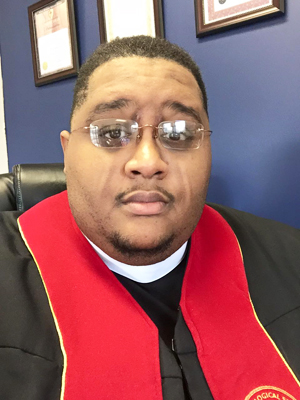
By Brandon A. A. J. Davis, DMin, Senior Pastor of Historic Warren AME Church
Guest Column
As a pastor serving a predominantly Black and historic congregation in Toledo, I’ve seen firsthand how lack of access to capital and financial services can hold back hardworking families and small businesses. That’s why I’m so encouraged by Capital One’s newly announced $265 billion Community Benefits Plan. This historic commitment launched in connection with Capital One’s bid to acquire Discover has the potential to lift up low- and moderate-income communities across the nation. To provide for them an opportunity to advance their financial well-being within society.
For too long, many of our neighborhoods have been underserved by mainstream financial institutions. Predatory lenders have filled the void, trapping people in cycles of debt. Small businesses struggle to get the loans they need to grow and create jobs. Aspiring homeowners face barriers to building generational wealth. Capital One’s plan directly addresses these systemic issues with targeted investments and innovative programs.
I’m particularly excited about the $200 billion earmarked for consumer lending to low- and moderate-income individuals. This will expand access to responsible credit cards and auto loans, helping families weather financial emergencies and access reliable transportation to get to work or school. The commitment to unsecure 90 percent of secured credit card accounts in good standing after two years will help many rebuild their credit and graduate to mainstream financial products.
The $15 billion for small business lending will be a game-changer for minority entrepreneurs in our communities. I’ve counseled countless congregants with great business ideas who couldn’t get a traditional bank loan. Capital One’s partnership with Community Development Financial Institutions (CDFIs) to provide below-market rate loans and wrap-around services will nurture a new generation of job-creating enterprises.
As someone deeply involved in affordable housing efforts, I’m heartened to see over $35 billion dedicated to this critical need. The additional support for down payment assistance, home repairs, and foreclosure prevention will help many in our community achieve the dream of stable homeownership.
What sets this plan apart is how it was developed. Capital One didn’t craft this in a boardroom vacuum. They engaged in extensive dialogue with grassroots community organizations who truly understand local needs. Groups like the National Association for Latino Community Asset Builders, NeighborWorks America, the Opportunity Finance Network, and the Woodstock Institute were key negotiating partners.
These respected nonprofits pushed for commitments that will make a real difference – like maintaining 30 percent of bank branches in low- and moderate-income areas, expanding pro bono technical assistance to community groups, and increasing support for minority-owned businesses. They ensured the plan addresses crucial issues like responsible AI development and advocacy for equitable financial policies.
Of course, a plan is only as good as its implementation. That’s why I’m glad to see the commitment to regular reporting and ongoing engagement with community advisors. As faith leaders, we’ll be watching closely and holding Capital One accountable to these promises.
There’s still much work to be done to create a truly inclusive financial system. But this Community Benefits Plan represents a major step in the right direction. It demonstrates how banks can be a positive force in creating economic opportunity for all.
My hope and prayer is that other financial institutions will follow Capital One’s lead and make similarly bold investments in underserved communities. Our congregations and neighborhoods are full of talented, ambitious people. With expanded access to responsible financial services and capital, there’s no limit to what they can achieve for the overall equity of our shared communities.
